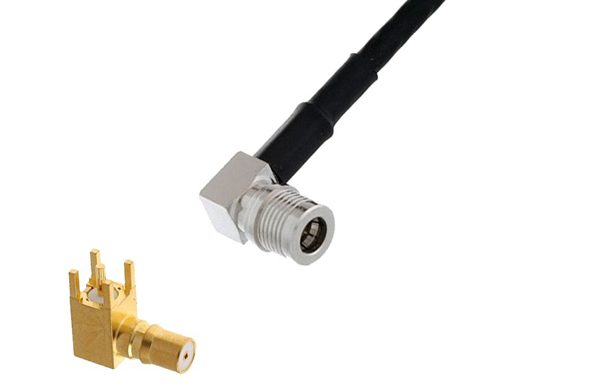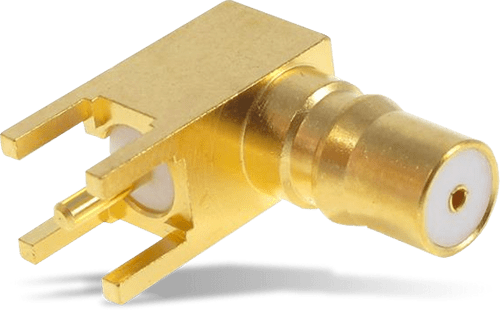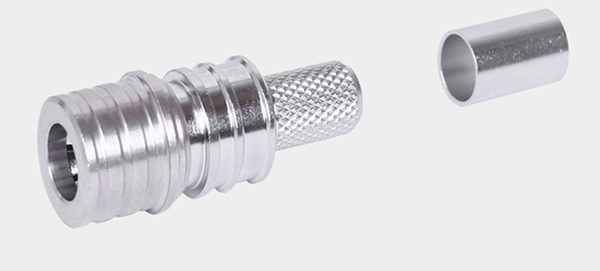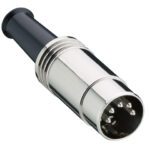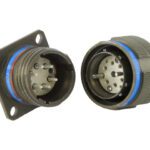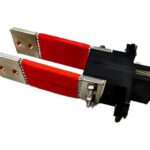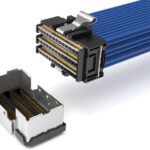What are QMA Connectors?
Meet the Connector: QMA Connectors
The internal construction of the QMA is identical to the SMA and, like that connector, it delivers excellent performance up to 18 GHz and has the same power handling capabilities. The main difference is in the coupling mechanism. Instead of a threaded coupling, QMAs have a snap-on design with a 360° butt joint which also reduces RF leakage. This design offers a significant time advantage: typical installation time is 10 times faster than using an SMA. Because no wrench is needed, the clearance requirements are eliminated, enabling greater packaging density.
The name QMA indicates quick mating; the name SMA indicates Sub-Miniature version A. The connector family was created by the Quick Lock Formula Alliance, which included Amphenol, Radiall, Huber+Suhner, and Rosenberger. It has been available since 2003.
Applications
Antennas, base systems, GPS
Design Notes
Designers of medium-power applications can specify the QN connector, a variation of the QMA developed as an alternative to N-Type connectors.
QN connectors are available in male or female, straight or right-angle versions, as well as, bulkhead, 4-hole panel or mountless options.
To make cable routing easier, QMAs can rotate 360° after installation
- Impedance:50 Ohm
- Frequency Range:DC to 18 GHz
- Dielectric Withstanding Voltage:1000 Vrms at sea level
- Insulation resistance: 5000 MΩ Min
- RF Leakage:-120 dB max. (DC 3 GHz)
- Temperature Range:-65 ° to 165 °C
- Power Handling: 75 W @ 10 GHz @ 25ºC
- Durability: 100 cycles min. into a full detent shroud; 500 cycles min. into a limited detent shroud; 1,000 cycles min, into a smooth bore shroud
Markets, Sectors, and Applications
- Datacom/Telecom, Test & Measurement, Medical, Military and Aerospace
Suppliers
Bel Magnetic Solutions, Molex, Radiall, Samtec Inc., TE Connectivity, Times Microwave, Amphenol RF, Commscope, Conec, Fairview Microwave, Pasternack, Rosenberger, SV Microwave
Related products:
- SMA Connectors
- RF connector
- SMB connector
- SMC connector
- BNC connector
- TNC connector
- N connector
- Coaxial cable
- Optical fiber connector
- MMCX connector
- MCX connector
Learn more about RF coaxial connectors.
For more information on connector types check out our other Meet the Connector articles.
Subscribe to our weekly e-newsletters, follow us on LinkedIn, Twitter, and Facebook, and check out our eBook archives for more applicable, expert-informed connectivity content.
- Meet the Connector: DIN Standard Connectors - April 16, 2024
- Software-Driven Radio Reinvigorates Old Technology - April 9, 2024
- What is a Busbar? - April 2, 2024
